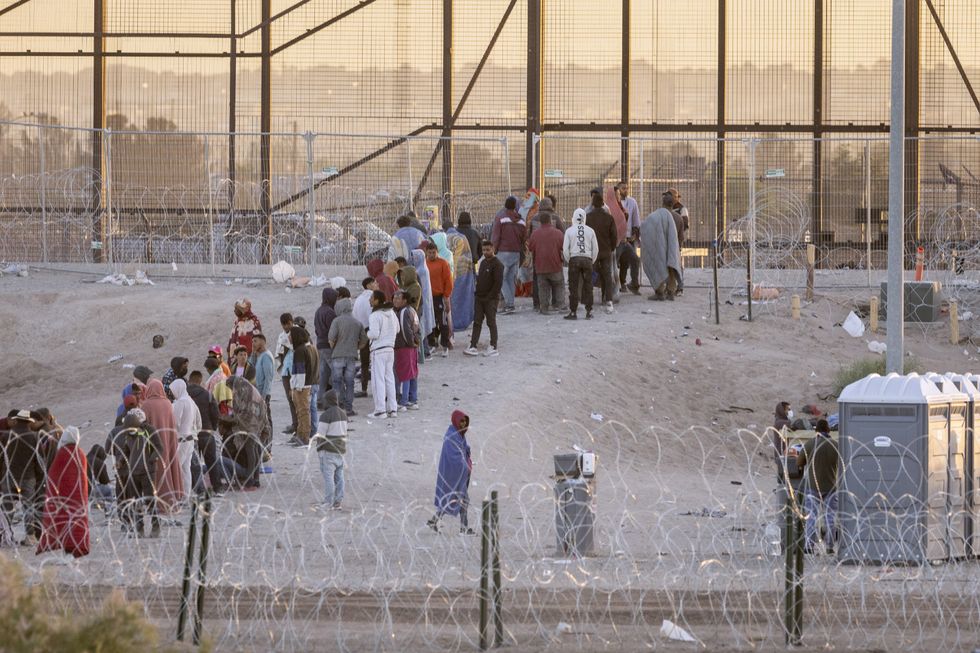CNN claims climate change will make the summer Olympics impossible for many cities by 2050
A CNN report backed by a climate change nonprofit group claimed that many cities across the world will become too hot to host the summer Olympics in the near future.By 2050, the report said, cities in the eastern United States and around the world will surpass safe temperatures in the summer and therefore not be suitable to host the Olympic games. Other cities that have already hosted the games will not be able to host again unless they offset the weather by hosting the competition in cooler months, the report continued.'We no longer have time for approaches that don't work.'A perceived heat-stress limit was measured by combining heat, humidity, windspeed, sun angle, and cloud cover. With these factors taken into consideration, the report explained that 82.1 degrees was the limit for holding safe sporting events.This would disqualify any states around the Gulf of Mexico, including Florida, Texas, and Georgia. CNN also determined that Beijing, Shanghai, Hong Kong, and much of Southeast Asia would be off limits for hosting the summer games in the regular months.CNN used the analysis of CarbonPlan, a nonprofit that describes itself as "addressing the climate crisis.""In addition to rapidly achieving deep emission reductions, we also need gigaton-scale carbon removal and sound strategies for adapting to climate change. Our solutions must respect science and support just outcomes. We no longer have time for approaches that don't work," the organization claimed.However, the most recent examples of a summer games that broke the alleged heat threshold was Tokyo in 2021. Despite being the hottest summer Olympics on record at an average of over 89 degrees, CNN noted that exactly zero athletes were hospitalized. No hospitalizations occurred, despite an alleged 1 in 100 athletes suffering heat-related illnesses. The underwhelming results were due to Japan's pristine preparations and protocols for addressing heat stroke, the report concluded.Sports are routinely played well above the 82-degree threshold and have been for decades. Using the NFL as example, there are many record-breaking events over the years that bring a supposed heat-stress limit into question.Super Bowl VII was the hottest Super Bowl on record and took place in 1973 at 84 degrees.In 1991, the New England Patriots played the Arizona Cardinals in 94-degree weather.In 2003, the Green Bay Packers visited Arizona to play in 102-degree heat. — (@) A 2007 match between the Dallas Cowboys and Miami Dolphins reached a record-setting 120 degrees at Sun Life Stadium in Miami, Florida. This stands as being the hottest NFL game ever played.The Patriots and Jacksonville Jaguars played under a 97-degree sun in 2018, while Fox Weather reported in 2022 that the Miami Dolphins routinely play at close to 90 degrees for their home games.That doesn't mean other sports don't take precautions for the heat; the MLB's Texas Rangers have moved most of their home games to be played at night due to the Arlington, Texas, heat. The Rangers even changed stadiums to have a retractable roof due to routine 100-degree weather at game time.With this 82-degree threshold being routinely surpassed over a 50-year period across various sports, it does seem that the alleged experts are once again wrong.Like Blaze News? Bypass the censors, sign up for our newsletters, and get stories like this direct to your inbox. Sign up here!


A CNN report backed by a climate change nonprofit group claimed that many cities across the world will become too hot to host the summer Olympics in the near future.
By 2050, the report said, cities in the eastern United States and around the world will surpass safe temperatures in the summer and therefore not be suitable to host the Olympic games. Other cities that have already hosted the games will not be able to host again unless they offset the weather by hosting the competition in cooler months, the report continued.
'We no longer have time for approaches that don't work.'
A perceived heat-stress limit was measured by combining heat, humidity, windspeed, sun angle, and cloud cover. With these factors taken into consideration, the report explained that 82.1 degrees was the limit for holding safe sporting events.
This would disqualify any states around the Gulf of Mexico, including Florida, Texas, and Georgia. CNN also determined that Beijing, Shanghai, Hong Kong, and much of Southeast Asia would be off limits for hosting the summer games in the regular months.
CNN used the analysis of CarbonPlan, a nonprofit that describes itself as "addressing the climate crisis."
"In addition to rapidly achieving deep emission reductions, we also need gigaton-scale carbon removal and sound strategies for adapting to climate change. Our solutions must respect science and support just outcomes. We no longer have time for approaches that don't work," the organization claimed.
However, the most recent examples of a summer games that broke the alleged heat threshold was Tokyo in 2021. Despite being the hottest summer Olympics on record at an average of over 89 degrees, CNN noted that exactly zero athletes were hospitalized.
No hospitalizations occurred, despite an alleged 1 in 100 athletes suffering heat-related illnesses. The underwhelming results were due to Japan's pristine preparations and protocols for addressing heat stroke, the report concluded.
Sports are routinely played well above the 82-degree threshold and have been for decades. Using the NFL as example, there are many record-breaking events over the years that bring a supposed heat-stress limit into question.
Super Bowl VII was the hottest Super Bowl on record and took place in 1973 at 84 degrees.
In 1991, the New England Patriots played the Arizona Cardinals in 94-degree weather.
In 2003, the Green Bay Packers visited Arizona to play in 102-degree heat.
— (@)
A 2007 match between the Dallas Cowboys and Miami Dolphins reached a record-setting 120 degrees at Sun Life Stadium in Miami, Florida. This stands as being the hottest NFL game ever played.
The Patriots and Jacksonville Jaguars played under a 97-degree sun in 2018, while Fox Weather reported in 2022 that the Miami Dolphins routinely play at close to 90 degrees for their home games.
That doesn't mean other sports don't take precautions for the heat; the MLB's Texas Rangers have moved most of their home games to be played at night due to the Arlington, Texas, heat. The Rangers even changed stadiums to have a retractable roof due to routine 100-degree weather at game time.
With this 82-degree threshold being routinely surpassed over a 50-year period across various sports, it does seem that the alleged experts are once again wrong.
Like Blaze News? Bypass the censors, sign up for our newsletters, and get stories like this direct to your inbox. Sign up here!
Originally Published at Daily Wire, World Net Daily, or The Blaze
What's Your Reaction?
































































































